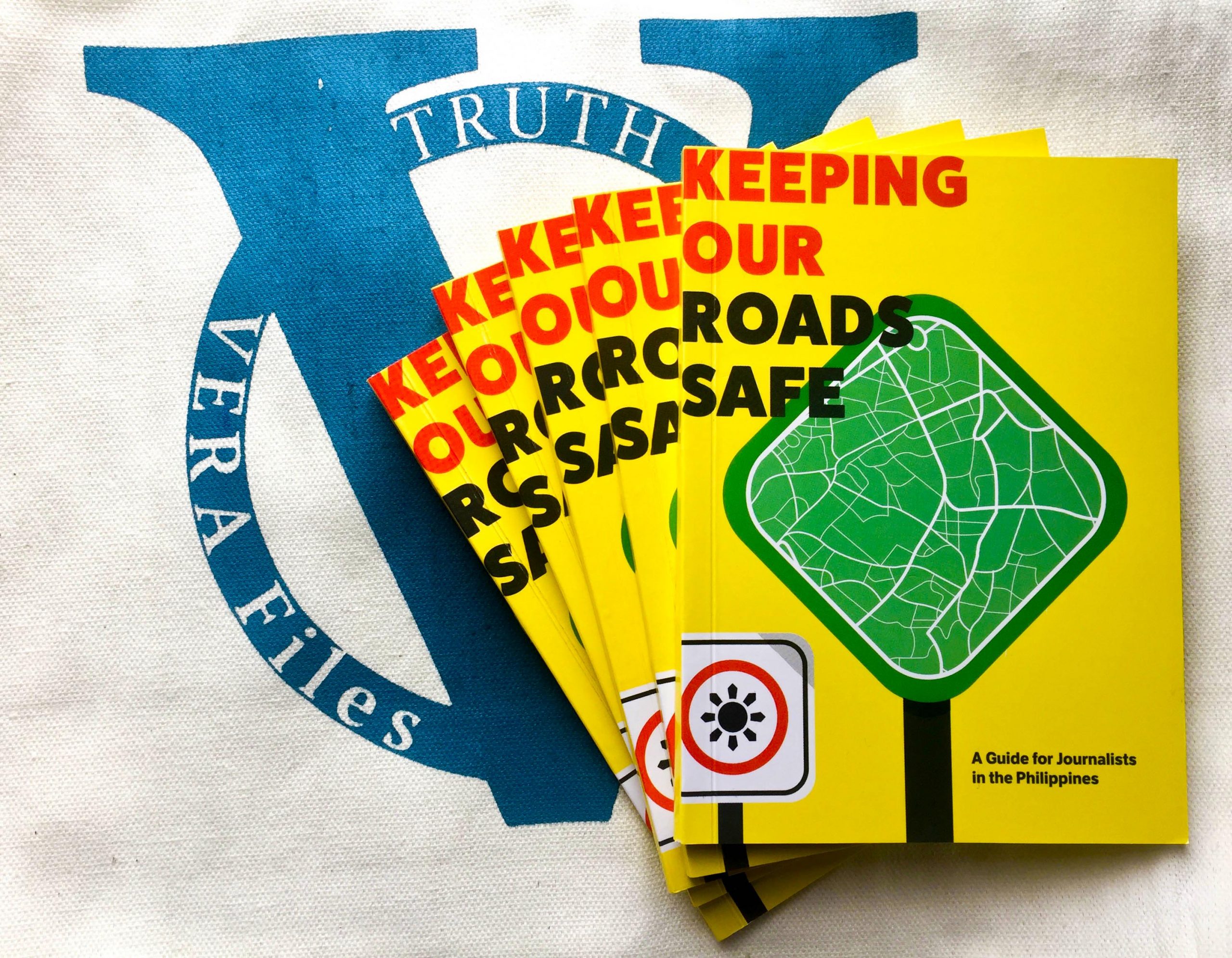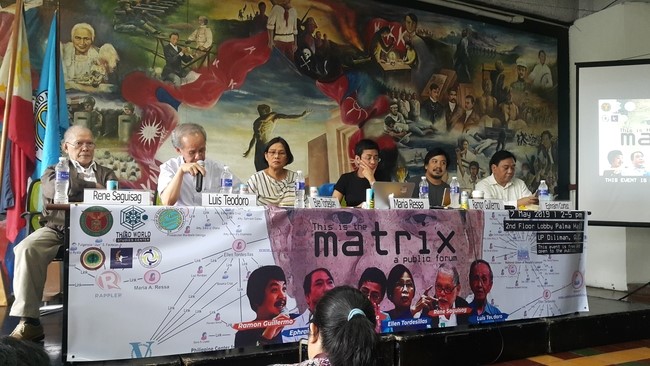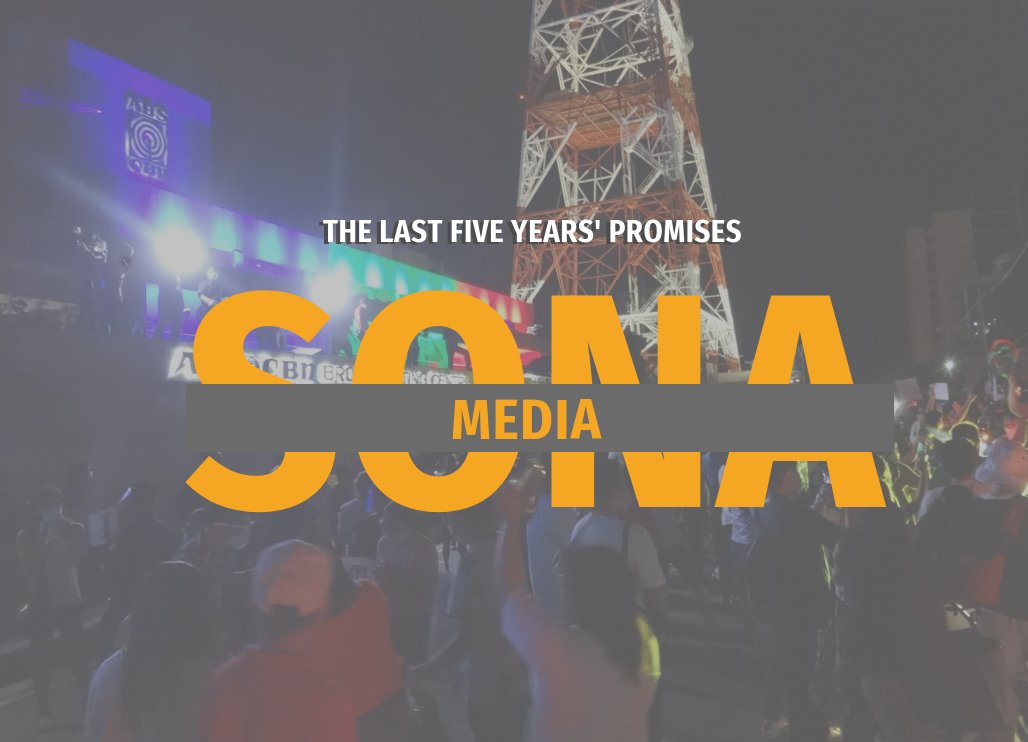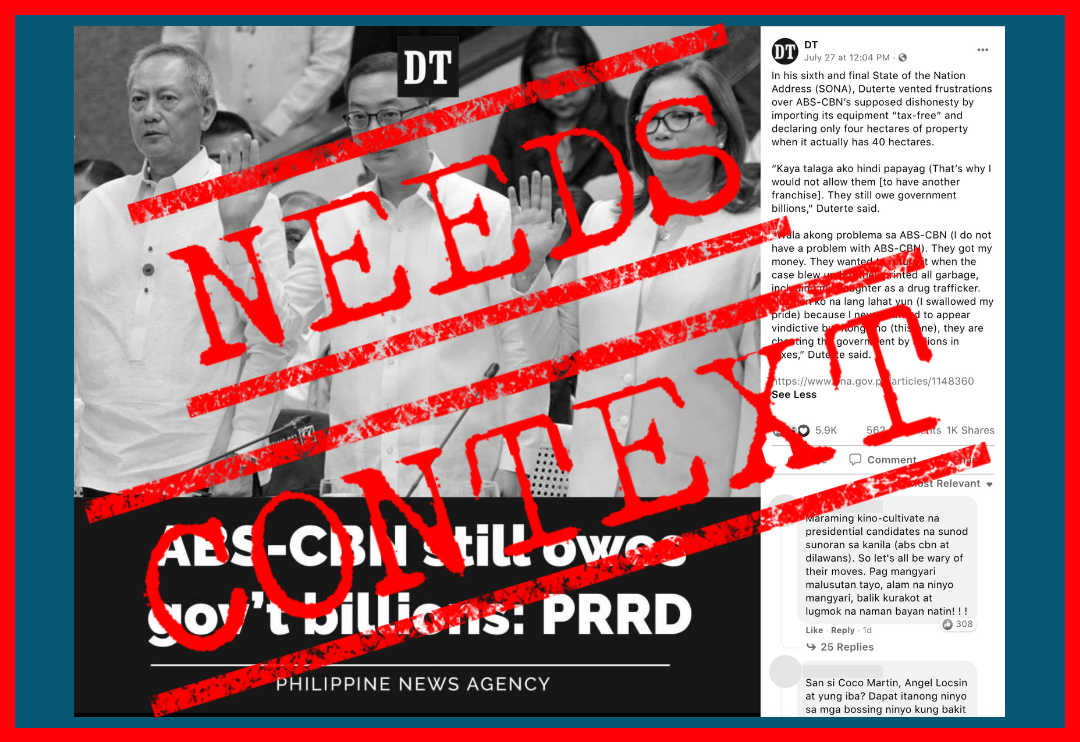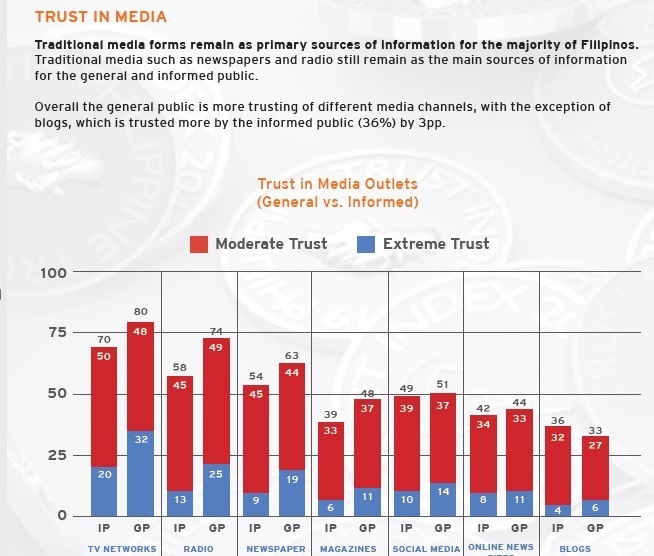
2019 PTI Trust in Media
The
sharp decline of the public trust in media based on the findings of
2019 Philippine Trust Index survey is not surprising but something
to be concerned of.
Media
is essential in a democracy. There is no democracy where and when
media is not free.
Media
strengthens democracy by informing the people of what is happening as
truthfully as it can be ascertained. In doing so, the people can
hold accountable the officials for all their actions and decisions.
Media
plays a vital role in making democracy truly a government of the
people, for the people and by the people.
That’s
why it is important that media is trusted by the people. Trust, being
the attribute of being believed to be good, honest and can be
depended on.
The
PTI survey, conducted by the EON Group every two years nationwide,
looks into levels and drivers of trust among Filipinos on six
institutions – the Government, the Business Sector, the Media,
Non-Governmental Organizations, the Church and the Academe.
The
result of the survey conducted from March to April 2019, before the
May 2019 elections saw trust in all the six institutions declining
with Media and NGO sustaining the biggest drop, 22 points for the NG0
from 59 percent to 37 percent and nine points for media from 78
percent to 69 percent.
It
would be interesting to find out the reasons for the decline on the
trust on NGOs, an important institution in a country like the
Philippines, where government presence is not felt in many parts of
the country.
On
media, PTI’s survey showed that the two major reasons cited for
the decline of trust are the competence of the journalists and the
quality of reporting.
The
third reason where media is failing is truthfulness in reporting. In
this time of fake news, it is understandable that the public is
unsure if what they read or hear from news outlets is really the
truth. There is also the issue of bias.
The
biggest drop is on the issue of integrity. On the quality of “Cannot
be bribed”, it dropped to 59 percent this year from 74 percent in
2017,
Sadly,
the perception is not exactly false.
One
heartening finding of the EON survey is that “Traditional media
such as newspapers and radio still remain as the main sources of
information.”
The
PTI’s online component, where the researchers monitor online
conversations, covered a longer period – June 2018 to March 2019.
Distrust of media is high, 62 percent.
“In
colloquial conversations, terms such as ‘biased media’ and ‘fake
news’ have become buzzwords -further reinforcing the prevailing
theme that many users believe today’s media is allegedly influenced
by political leanings,” the study said.
This
is a wake-up call for media to shape up or be rendered irrelevant.
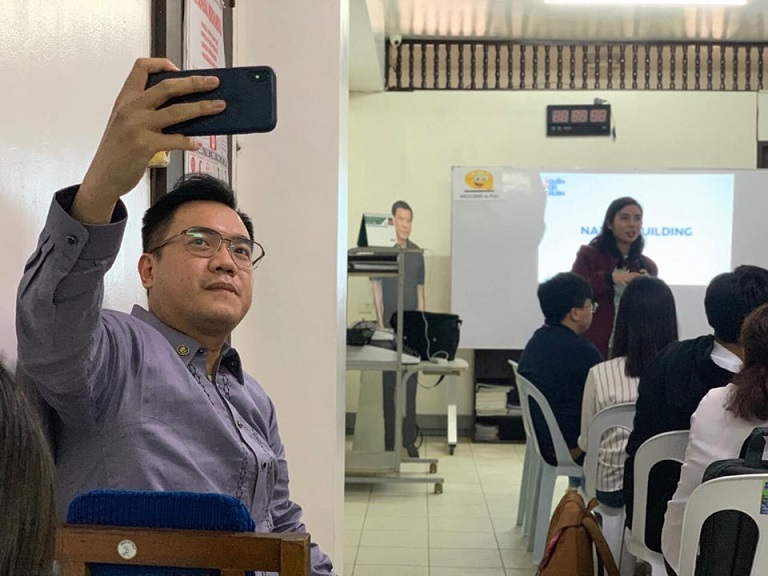
PCOO’s brand integrator Ramon Cualoping in a seminar in Legazpi, Albay. Photo from Cualopin’g FB page. Legazpi Albay
EON
had five competent panelists to discuss the survey: Al Jazeera’s
Jamela Alindogan, political analyst Richard Heydarian, businesswoman
Pacita Juan, Jess Lorenzo, executive director of SEAOIL Foundation,
and Ramon Cualoping III, assistant secretary, Presidential
Communications Operations Office.
Cualoping
sports the title of “Chief Brand Integrator.”
I had to go to another meeting so I was not able
to wait for the open forum and ask this question to Cualoping: “Your
title ‘Chief Brand Integrator’ sounds like someone selling a
product -a soap, soft drinks, a cellphone, a fashion line, etc.As
‘Chief Brand Integrator’“ in the PCOO, what brand are you
promoting- The Republic of the Philippines or President Duterte? Has
the PCOO reduced the Office of the President to a brand, just like
selling soap?

